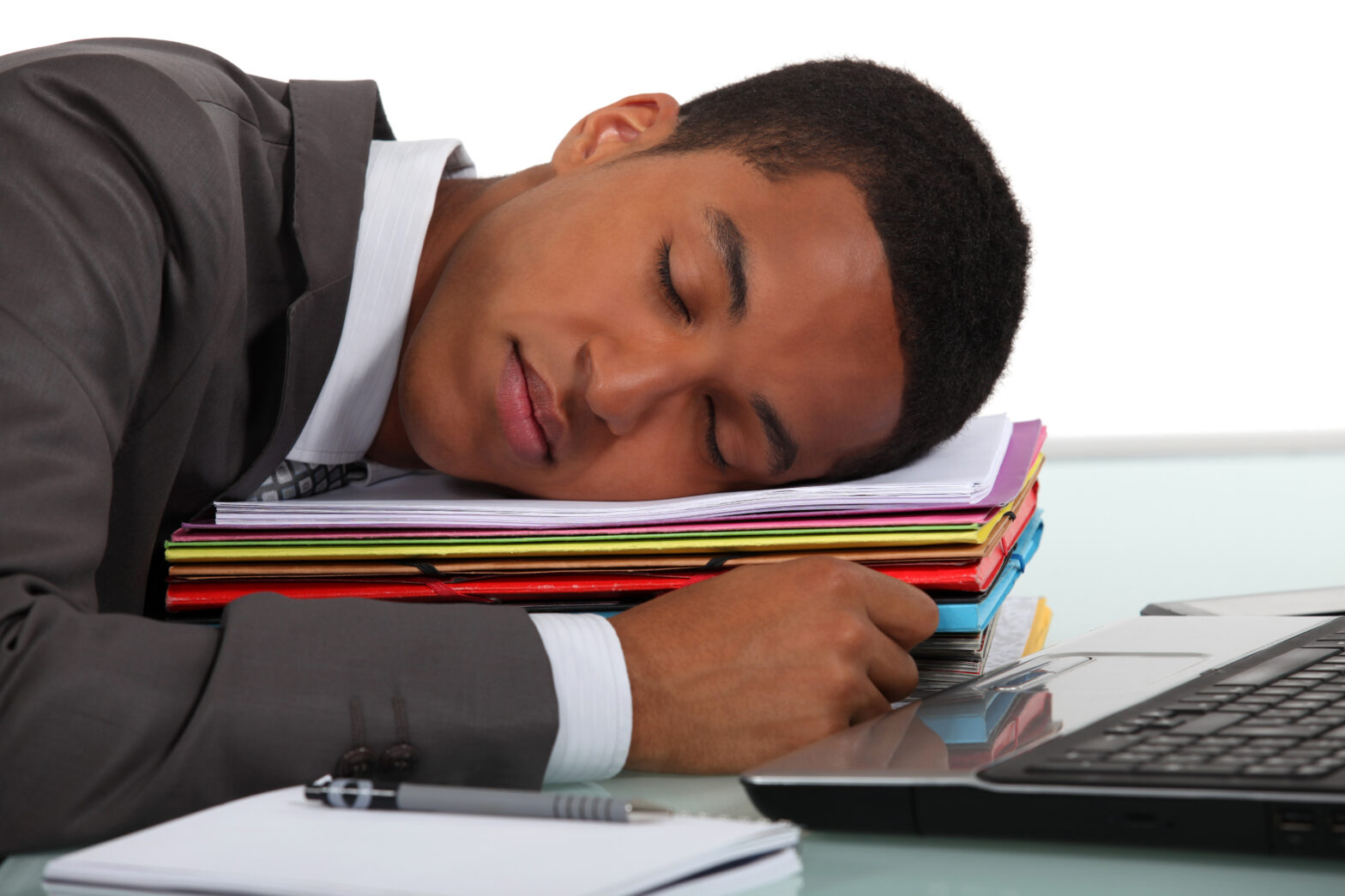More than three quarters (77 per cent) of Brits admit that having a bad night’s sleep negatively impacts their working day, with 27 per cent claiming that they feel exhausted on a daily basis. That’s according to the latest research from CV-Library.
The study explored the attitudes of 1,300 workers around the topic of sleep and the workplace and was conducted with input from Sleep Neuroscientist, Professor Jim Horne. The research finds three quarters of Brits (74.5 per cent) cite workplace stress as a key cause of their disrupted sleep, with a further 92.5 per cent admitting that a stress-related disrupted sleep negatively affects their emotions.
Lee Biggins, founder and managing director of CV-Library comments, ‘There are many factors that can affect your performance at work and I’m sure we’re all familiar with the negative feelings that can follow a bad night’s sleep. While this is manageable every now and again, it can quickly become all-consuming if not dealt with properly and it’s concerning to learn that many workers aren’t sleeping well because of workplace stress.
‘If you’re suffering particularly badly, it could be worth talking to your employer to see if there’s anything that can be done to make the working day that little bit easier for you. For example, being able to work from home if you’re not feeling 100 per cent, or taking an earlier lunch break if you’re in desperate need of some fresh air, are just small steps that can make a big difference.’
What’s more, while the majority of workers (58.9 per cent) would like to get 7-8 hours of sleep a night, only 26.1 per cent currently achieve this, with most people (56.8 per cent) actually receiving 5-7 hours. The research finds sleep deprivation is most likely to affect an employee’s ability to stay focused (72.7 per cent) as well as their ability to deal with challenging situations (46.5 per cent) and make important decisions (34.2 per cent).
Professor Jim Horne comments, ‘Most work situations require individuals to make critical decisions, remain focussed and complete tasks within a timely and efficient manner. However, it’s clear from these findings that sleep loss can impair attention to detail amongst workers. The longer a person is awake, the more likely their mood is to be negatively affected, as well as their willingness to take risks in the workplace. Again, this could be cause for concern.’
The study also explores the topic of night workers, and finds one third (33.5 per cent) of individuals who work night shifts suffer from excessive sleepiness during their working hours, with one in five (20.8 per cent) then driving between five and ten miles home afterwards. Worryingly, nearly two thirds (63 per cent) admit that their employer has not provided any advice on how to cope with night shifts.
Professor Jim Horne adds, ‘By the end of the first night on a 12 hour night-shift, an individual may have been awake for up to 24 hours, potentially leading to impairments when it comes to dealing with unexpected challenging situations. If you do work night shifts, try and get into a routine when it comes to sleep: at the end of your shift, drink a couple of cups of coffee and aim to get your longest sleep during the afternoon, rather than when you get home in the morning. It is difficult to sleep in the morning as the body clock wants you to wake up, whereas in the afternoon it has a natural dip and allows for better sleep, and a less sleepy night shift.
‘Similarly, people that work jobs which require driving during the night should take precautions. During breaks, have a couple of cups of coffee (or another caffeinated drink), then immediately find a quiet place for a short 15 minute nap as it will take 20 minutes before the caffeine will kick in. Then take a brief walk to freshen up. This combination has been tried and tested by us, confirmed by others, and is now included in the UK ‘Highway Code’.’
Individuals that work outdoors receive the longest amount of sleep each night (33.7 per cent received seven-eight hours) and were the most likely to sleep well. Managers on the other hand were the most likely to rarely sleep well at night, as well as being the most likely to reference workplace stress as their main cause for sleep deprivation.





